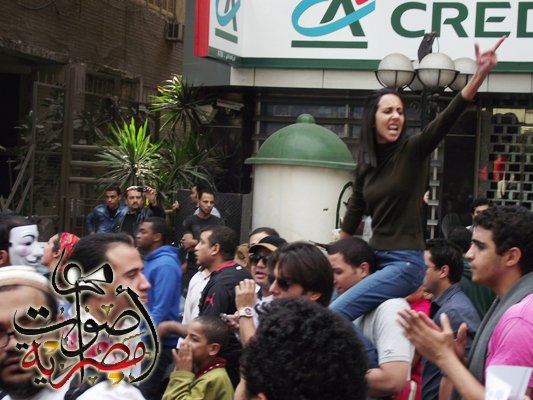Latest NEWS
- Aswat Masriya, the last word
- Roundup of Egypt's press headlines on March 15, 2017
- Roundup of Egypt's press headlines on March 14, 2017
- Former Egyptian President Hosni Mubarak to be released: lawyer
- Roundup of Egypt's press headlines on March 13, 2017
- Egypt's capital set to grow by half a million in 2017
- Egypt's wheat reserves to double with start of harvest -supply min
- Roundup of Egypt's press headlines on March 12, 2017
Banks, gold shops near Tahrir to close doors in fear of protests

Thousands of Egyptians protest new decrees of President Mohamed Mursi on Friday, November 23, 2012. Ahmed Hamed/Aswat Masriya
Banks, currency exchange outlets, gold shops and most commercial venues on the outskirts of Cairo's Tahrir Square close their doors on Tuesday in anticipation of the scheduled million-man march against the president’s recently-decreed controversial Constitutional Declaration Al-Ahram Arabic-language news site reports.
Bank administrations decided to close their branches located in the Tahrir Square permittee, including the Falaki, Bab El-Louk, Garden City and Qasr Al-Aini areas, although the Federation of Egyptian Banks (FEB) assured that all ATM machines in those areas will be functioning and available for cash withdrawal as usual.
Most gold shops will close Tuesday in anticipation of the day’s developments. If protests do not become violent, however, owners will likely open to the public by the end of the day, said Wassfy Amin, head of the gold division at the Federation of Egyptian Chambers of Commerce (FCC).
Gold shops will be the most negatively affected by the situation, since the nature of their business usually requires long hours of activity, detailed Amin.
Areas that are not in the proximity of Tahrir and far from possible traffic by mobs will likely experience business as usual, Amin foresees, asserting that the gold division leaves opening or closing up to the owners’ discretion.
All currency exchange branches in the downtown area are reported to be closed because, as the head of the currency exchange division at the FCC, Mohamed El-Abyad, suggests companies and individuals might be too nervous to trade in the domestic money market in areas near the planned protests.
El-Abyad noted that the domestic money market seems to be nearly paralyzed this Tuesday, doubling the fears of further negative repercussions on the stock market.
Egyptian President Mohamed Morsi issued his Constitutional Declaration on Thursday, which states that his presidential decrees cannot be overturned by judicial authorities and further protects the parliament and Constituent Assembly from dissolution by the judiciary.










